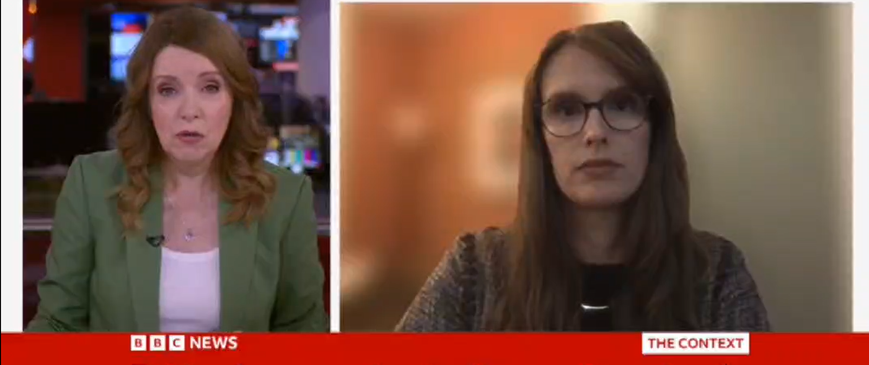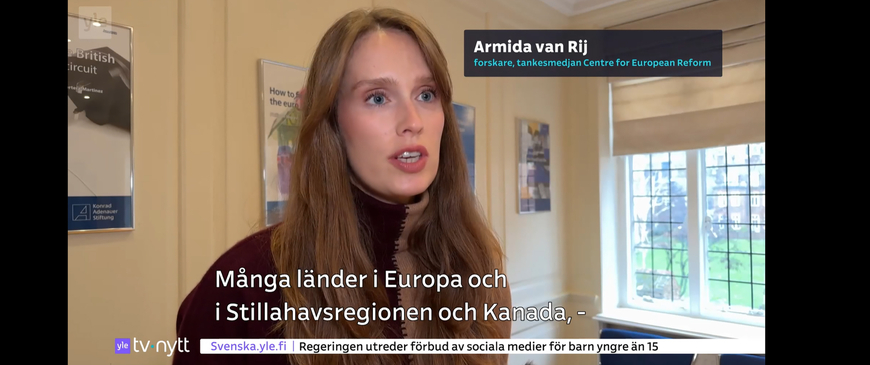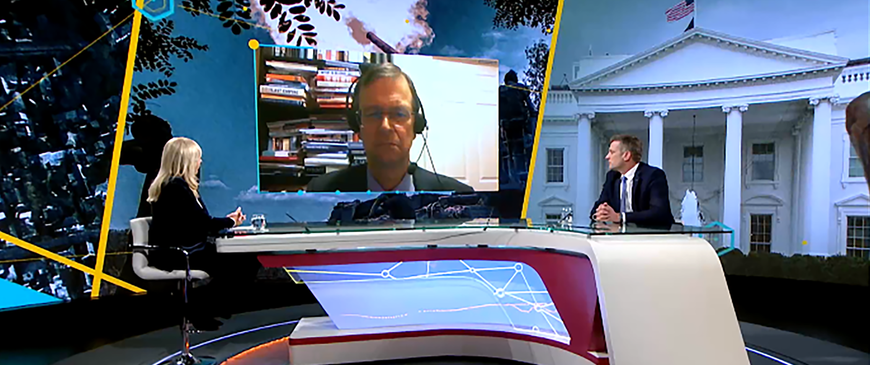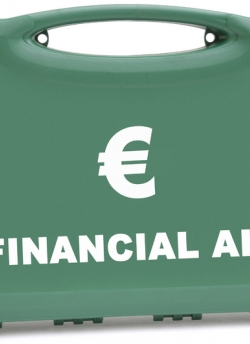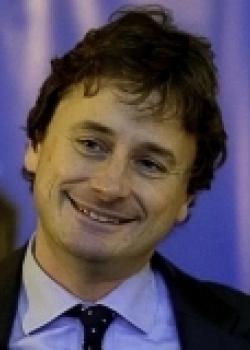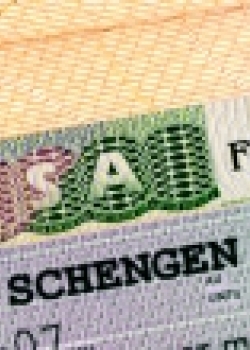Press
Greece's islands will not be offered as loan collateral, warns prime minister
15 May 2011
The Guardian
"The longer this goes on, the more you increase the likelihood of serious damage to the relationship between the member states, and the more you risk the erosion of what remains a fairly sturdy consensus in favour of membership," said Simon Tilford, chief economist at the Centre for European Reform.
Greece is the word
15 May 2011
The Sunday Business Post
"The politics look formidably difficult," wrote Simon Tilford of the London-based Centre for European Reform in a research note last week.
Greece and Portugal should both go gracefully
12 May 2011
Financial Times
Even as the ink is drying on Portugal's European Union and International Monetary Fund bail-out agreement, evidence is mounting that last year's bail-outs of Greece and Ireland have failed. Far from improving their access to the financial markets, Greece and Ireland face record borrowing costs.
EU ministers discuss influx of migrants
12 May 2011
Voice of America
Hugo Brady, a Brussels-based analyst for the think-tank Centre for European Reform, says French and Italian leaders who urged toughening Schengen are in a political bind - in part because of the rise of far-right, anti-immigration parties. But Brady doubts border-free travel in Europe will be scrapped. "The practicalities of the everyday won't allow for it ... People value the convenience of being able to travel around Europe without a passport. It's a significant achievement that I think very few people will want to roll back."
EU and South Korea open trade
11 May 2011
The Prague Post
According to Phillip Whyte, a senior research fellow with the London-based Centre for European Reform, the bilateral agreement represents only the second best option for the two sides after multilateral trade talks between the World Trade Organisation and its member countries began to slow more than a decade ago. "The problem economists have with these regional trade agreements is they're becoming a replacement for multilateral agreements You're seeing a spaghetti bowl of individual bilateral agreements, much like this one, and they sort of cut across each other.
NATO, EU defend record of saving African migrants
10 May 2011
Voice of America
Analyst Hugo Brady, of the London-based Centre for European Reform, says the sea migration from Africa to Europe has been going on for years. But the numbers have spiked with the recent Arab uprisings. "The reason why the Arab Spring has created so much instability in migration terms is ... obviously people are escaping a very difficult situation," said Brady. Brady says the turmoil in Tunisia, Libya and elsewhere also means these countries no longer patrol their coastlines to prevent migrants from heading to Europe.
Analysis: Effort aside, Europe fails to staunch debt crisis
09 May 2011
Reuters
"From the start they have misdiagnosed the problem -- they haven't come clean about what the problem is and hence the medicine is all wrong," said Simon Tilford, chief economist of the Centre for European Reform in London. "Quite clearly, the problem in the case of Greece, Ireland and Portugal is that investors have justified doubts about the ability of those countries to grow sufficiently quickly to service their debts," said Tilford. "In Portugal, the EU sees this as a liquidity crisis, but it's really a solvency crisis.
The EU's balancing act on open borders
04 May 2011
International Herald Tribune
"In Europe, we are surrounded by poorer but increasingly internationally mobile peoples who want in to societies boasting the highest quality of life in the world," said Hugo Brady, senior research fellow at the Centre for European Reform. "It is hard to see how we can deter that desire indefinitely. ... The politics of Schengen are such that no one wants to give up control of their own frontiers but everyone wants some control over other countries' borders," said Mr Brady, the research fellow.
France challenges Italy with border checks
01 May 2011
Financial Times
"The rules of the Schengen club are premised on all countries behaving in a way that takes into account the effect of their actions on their neighbours,” says Hugo Brady, senior research fellow at the Centre for European Reform think-tank. "When that stops happening – as we saw in this latest episode – the response from other member states will be to push for tighter borders." Despite the distrust between EU governments, however, Mr Brady argued that the closer monitoring did not mean the end to passport-free travel for most Europeans.
The eurozone has little to smile about
01 May 2011
The Wall Street Journal
Germany's finance minister, Wolfgang Schäuble, was the earliest to recognise Greece's insolvency. More recently, Clemens Fuest, president of the German finance ministry's advisory committee, declared that restructuring, the polite word for default, is inevitable. To which the widely respected director of London-based Centre for European Reform, Charles Grant, adds, "Most intelligent people know there has to be a significant restructuring to ease the burden on Greece, and we're not talking about a painless extension of maturities, but wiping away a large portion of the debt."
NATO airstrikes raise questions over motives
01 May 2011
Reuters
One answer could be that Western powers are simply hoping to terrify Gaddafi into giving up. "It appears pretty clear the alliance is using real political and physical pressure on Gaddafi," said Tomas Valasek of the Centre for European Reform think-tank. "It is clear they want him to feel unsafe and that his own future is at stake," he said.
Sarkozy-Berlusconi: A border control farce
29 April 2011
The Guardian
When Nicolas Sarkozy and Silvio Berlusconi announced plans to weaken passport-free travel in Europe this week, many onlookers concluded that the EU's most tangible achievement, the Schengen zone, was going the way of the single currency.
This is unlikely. Like the euro, the Schengen area, where passport checks were abolished in...
This is unlikely. Like the euro, the Schengen area, where passport checks were abolished in...
Far-right parties gain ground in European politics
27 April 2011
National Public Radio
The fact that they can express extreme views with "a veneer of acceptability" actually makes today's far-right leaders more dangerous than yesterday's skinheads, says Simon Tilford, chief economist for the Centre for European Reform, a London-based think tank that favours European integration. Today, there's a greater sense of unease about Europe's place in a globalised economy, Tilford says.
We have reached a share it or lose it moment
26 April 2011
Defence Management Journal
Despite all the cuts to defence budgets, Europe's militaries are not doing enough pooling and sharing of equipment and personnel; that is the opinion of Thomas Valasek, author of "Surviving Austerity - The Case for a New Approach to EU Military Collaboration".
NATO initiatives not seen as decisive in Libya war
26 April 2011
Reuters
Tomas Valasek of the Centre for European Reform think-tank said that despite NATO denials, it did seem the coalition was seeking ways to end the stalemate by targeting Gaddafi. "NATO's official mandate doesn't involve removing Gaddafi from power, so the commanders would deny it and say they are going after communications posts and such, but to me it does smell like they are going after Gaddafi personally. "That would mean a gap between what NATO collectively says it wants to do and what the French, the British and Americans say.
Sarkozy, Berlusconi meet amid tension on immigration, M & A
26 April 2011
Bloomberg
"It will be a difficult meeting", said Hugo Brady, a senior research fellow with the Centre for European Reform in Brussels. "Immigration, like economic policy, is such a sensitive issue that it can hardly be controlled at an EU level."
Is Germany flipping the bird at Europe?
22 April 2011
The Guardian
It would have caused a chuckle among British tabloid readers. In Germany (and Greece) it caused a storm. On February 22 2010, the German news magazine Focus published a cover that depicted the Aphrodite of Milos with an outstretched arm making a very rude gesture at its readers.
Eurozone may need to rethink anti-crisis strategy
21 April 2011
Reuters
"The easiest way out would be to do the restructuring soon," said Charles Grant, head of the Centre for European Reform in London. "Hit the private creditors and recapitalise the banks. It may still happen."
Interview: Military force is not enough to end Libyan conflict
21 April 2011
The Voice of Russia
Do you believe that the current Libyan crisis can be resolved by diplomatic efforts, not through the use of force?
War in Libya could drag on, military analysts say
20 April 2011
New York Times
Tomas Valasek, a defence expert at the London-based Centre for European Reform, compared NATO to an American political party, "a coalition of countries with broadly the same interests, but with different views." It was inevitable after the cold war, he said, that NATO countries would focus on different threats: terrorism and Afghanistan for some, like the United States, Britain, Canada and the Netherlands; Russia, for the Central Europeans. "As for the rest,I don't even know why they stay in NATO." NATO will never be what it was, Mr Valasek said.

